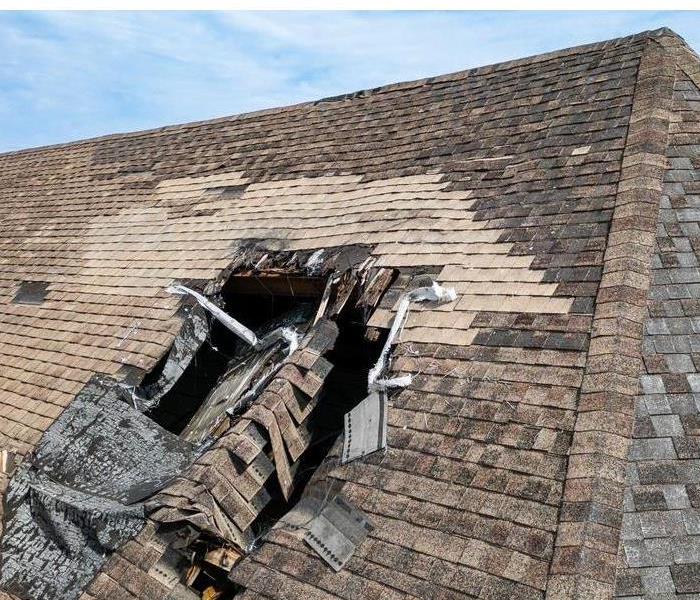Mold Prevention After Storm Damage: Key Steps to Take
12/16/2024 (Permalink)
Storms present serious issues for homeowners and property owners. High winds, pouring rain, and snow can often reveal and expose weaknesses in your property’s siding or roofing. While your immediate concern is handling the water damage cleanup that leaks in your property might cause, you should also think long-term. Mold grows wherever it can find ideal environments, meaning mold often proliferates after storms. Here is a quick guide on handling mold prevention, water damage cleanup, and mold remediation.
Dehumidify Your Property As Soon As Possible
A common mistake homeowners make is assuming that once they clean up any water that has pooled in their property, they are done. This is not true. When water enters your home, it stays in your home as moisture in the air, which is all mold needs to grow. A dehumidifier can help remove moisture from the air and decrease the likelihood that mold will grow.
Get Rid Of Waterlogged Furniture or Carpets
If upholstered furniture or carpets are damaged by water, you might need to get rid of them. Mold frequently grows inside waterlogged furniture and can grow inside couches, mattresses, and carpets. Sometimes, it is not worth drying the furniture, and it is better to simply get rid of it.
Check For Water Damaged Insulation
Certain insulation materials, like cellulose, which is made from recycled paper, can become infested with mold. During heavy rainfall, the insulation can soak up moisture, leading to mold growth inside your walls. After a storm, you should consider having a water damage cleanup crew look for signs of water damage in your insulation.
Disinfect Surfaces
If you work with a water damage cleanup crew, they will likely recommend that surfaces be cleaned and disinfected. This can help ensure that water damage does not lead to mold growth. Mold growth begins with spores, so disinfection can help prevent mold from growing in the first place.
Look For Mold Throughout Your Property
Mold growth requires existing mold. If you notice mold or mildew throughout your property, you should hire mold remediation specialists to help you clean up or get rid of contaminated surfaces. Here at SERVPRO®, we provide mold remediation and water damage cleanup for Newport County and Bristol County properties.





 24/7 Emergency Service
24/7 Emergency Service
